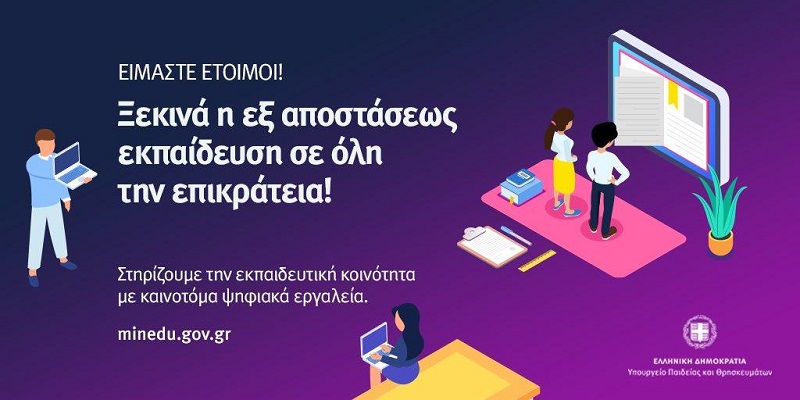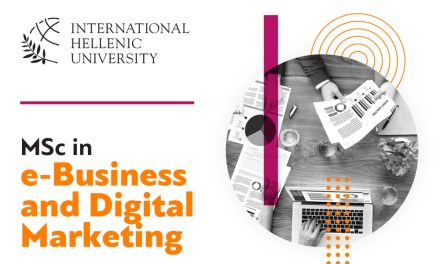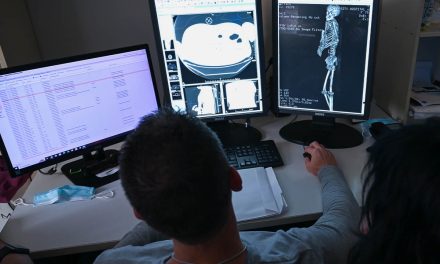Schools and Universities in Greece have been closed since March 11 due to the coronavirus pandemic as part of the government’s measures to prevent the spread of the disease. The Ministry of Education promptly responded to this emergency developing and gradually implementing distance learning, offering students the opportunity to keep in touch with the educational process. Without intending to replace face to face learning the Ministry is activating digital platforms and tools offered for free by ICT providers, addressed to the secondary and primary school students, as well as to Greek Universities.
The Ministry’s distance learning program includes synchronous learning that is online or distance education that happens in real time and asynchronous learning that occurs through online channels without real-time interaction. Synchronous learning will be at first offered to students in the last year of secondary education who are preparing for their university entry exams “Panellinies”, before being applied to the rest of secondary and primary schools. The educational program will be developed by the principal and the teachers of each school unit in accordance with the specific needs of every class. During the synchronous learning the teacher can share files, presentations even his screen and notes with his students, while he can give them the floor to pose questions or just speak, participating thus in an interactive lesson.
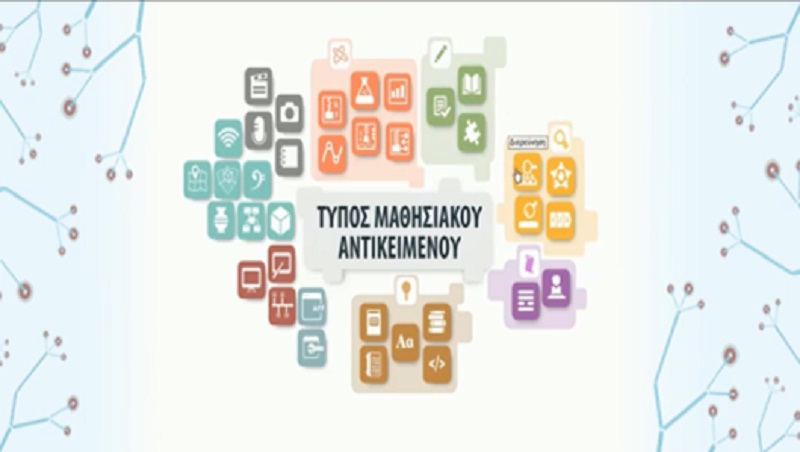
Concerning the asynchronous learning, students and teachers can use the existing digital tools and platforms already offered by the Ministry of Education such as the Interactive School Books, the Digital Educational Material (“Fotodentro”) and the Advanced Electronic Scenarios (“Aesop”) organized by educational level, course etc. E-learning videos will also be uploaded to the platforms so as the students can follow the e-courses any time of the day.
Distance learning will be mainly available through registration to the National School Network. So far, 631.269 student accounts have been created all over Greece and registration is open until March 30. The digital platforms “e-class” and “e-me” will be used for e-learning courses, while students will have the opportunity to follow “Open Classes” posted in the platforms by their teachers without prior registration. The IT companies CISCO, Google and Microsoft have offered for free three digital platforms to the Ministry of Education and the Greek Universities aiming to cover the increased needs in distance learning under these exceptional circumstances. Greek Universities already possess e-learning education programs and they can more easily start to offer online courses to their students.
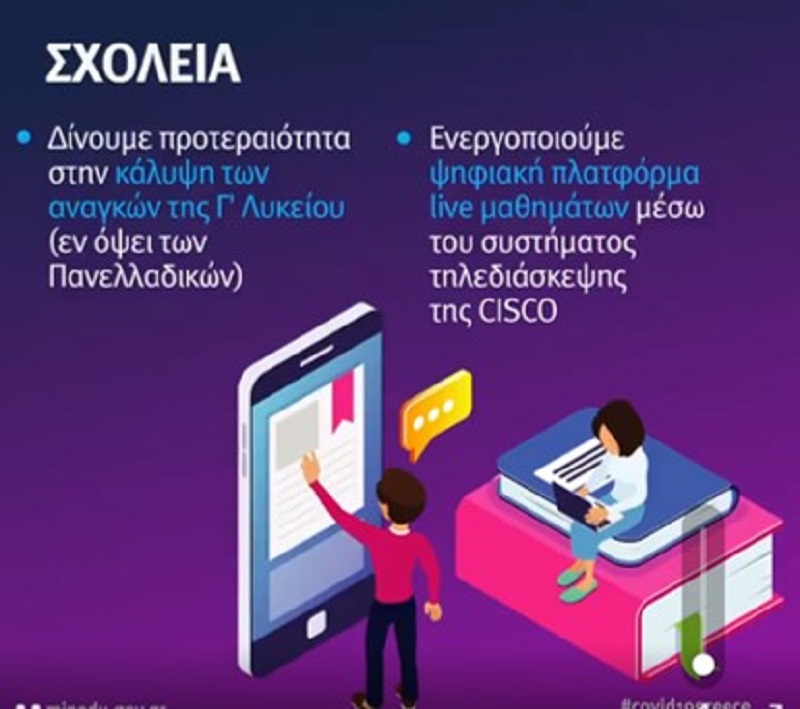
Taking into consideration possible technological constraints in accessing the digital platforms, the Ministry of Education has foreseen the possibility of connecting to the digital classes through a simple telephone connection. Special ICT applications and learning techniques will be also used, where possible, in order to adapt digital classes to the students with disabilities and/or special needs.
The launching of the above distance learning project, in such an emergent situation, is a good example of the potential of public and private sector synergies taking into consideration the complexity of the project and the time constraint. The school community in Greece has embraced this effort showing remarkable engagement to the demanding project of e-learning under these exceptional circumstances.
Images taken from the Ministry of Education website and FB page.
I.E.
TAGS: CRISIS | EDUCATION | INNOVATION | SCIENCE & TECHNOLOGY

